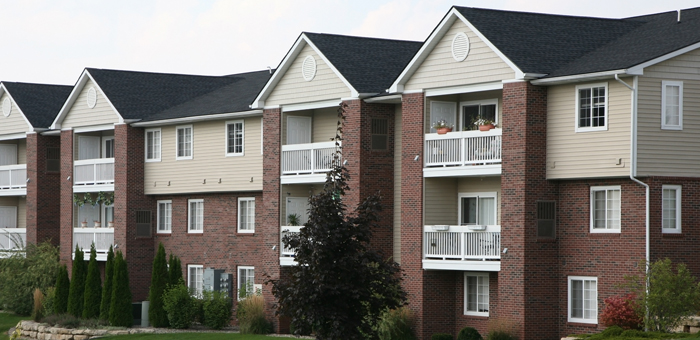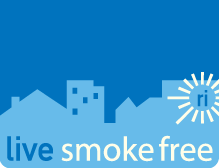
Property Managers
Landlords
Protecting your tenants from an invisible killer.
It is a common belief that what one does in his or her own home, stays there. Unfortunately, this is not the case. By testing the movement of air in multi-unit housing, we know that cigarette smoke can travel from one person's home and into another. Since there is no safe level of exposure to secondhand smoke, one person's cigarette can actually harm everyone else in the building. Adopting a smoke-free policy for the property you own is the right thing to do for everyone involved. For more helpful tips see Landlord Resources
Going smoke free saves money.
There are plenty of financial gains to going smoke-free. The rental turnover cost savings alone speak for themselves.
The Monetary Impact
Costs to Rehabilitate a Unit Where Smoking is Prohibited vs. a Unit Where Smoking is Allowed.
| Non-Smoking | Light Smoking | Heavy Smoking | |
| General Cleaning | $240 | $500 | $720 |
| Paint | $170 | $225 | $480 |
| Flooring | $50 | $950 | $1,425 |
| Appliances | $60 | $75 | $490 |
| Bathroom | $40 | $60 | $400 |
| TOTAL | $560 | $1,810 | $3,515 |
Smoke-free living is preferred by renters.
Smoke-free rental properties are very much in demand. By offering this feature, you can attract a larger pool of prospective tenants. Live smoke-free RI's Proud to be Smoke-free Toolkits contain information about most cost-saving benefits and detail exactly how you can get started.
Housing Managers
Twenty-one public housing authorities have already adopted smoke-free policies in Rhode Island. What is stopping you?
Join the movement. Bristol, Burrillville, Central Falls, Coventy, Cranston, Cumberland, East Greenwich, East Providence, Johnston, Lincoln, Newport, Pawtucket, Portsmouth, Providence, Smithfield, South Kingstown, Warren, Warwick, West Warwick, Westerly, and Woonsocket public housing authorities are enjoying the benefits that come with adopting smoke-free policies. Not only do these policies help keep housing affordable by reducing apartment cleanup and repair costs but they also make for healthier, happier residents and management staff.
There is no safe level of exposure to secondhand smoke. Smoke from one unit travels into others through the ventilation system, cracks in the floors and walls, and elevator shafts. The only way to protect tenants from the danger is to not allow smoking in the building. It is for this reason that HUD encourages public housing authorities and multi-family housing rental assistance programs to implement no-smoking policies in some or all of the units they own or manage.
Making the change is easier than you might think. Live smoke free RI's Proud to Be Smoke-free toolkits, will provide you with everything you need to get started.
For more helpful tips see Housing Manager Resources
- Quick Links
- Cost-Savings Associated with Prohibiting Smoking in U.S. Subsidized Housing
- Providence Housing Authority's documentary focused on the recently implemented Smoke Free Policy in it's Elderly/Disabled High Rise buildings.
- Secondhand Smoke into Condominiums, Apartments, and Other Multi-Unit Dwellings
- Legal Authority to Regulate Smoking and Common Threats and Challenges. Produced by the Tobacco Control Legal Consortium
- There is No Constitutional Right to Smoke
- CDC Guide Healthy Homes Manual PDF
- Download Individual Documents from the Smoke-Free Housing Toolkit
 Facebook
Facebook
